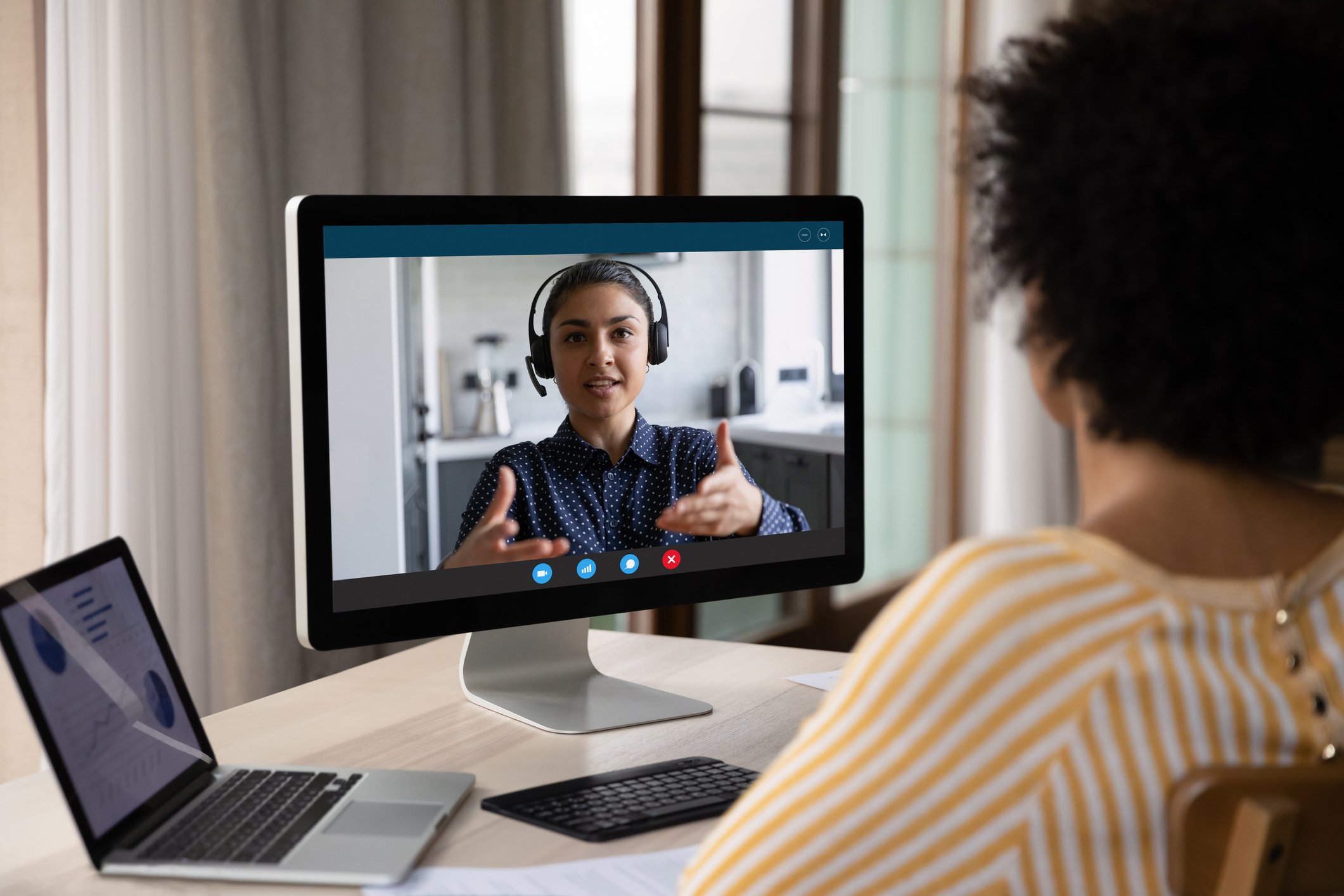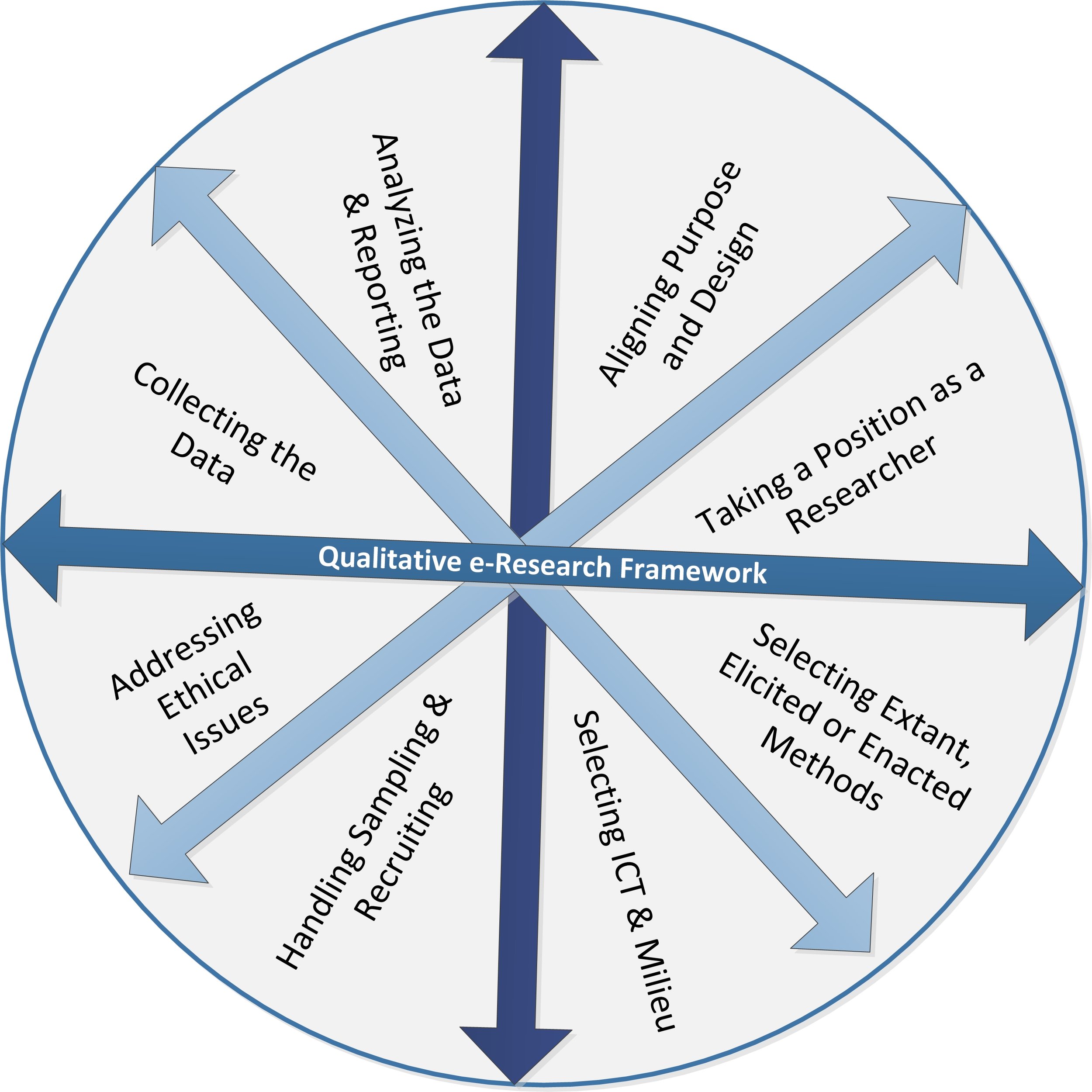Research questions: Insider/Outsider perspectives
by Janet Salmons, PhD, author of Doing Qualitative Research Online (2022).
Use the code COMMUNIT24 for a 25% discount when you order books from Sage, good until December 31, 2024.
How do research questions relate to your position as an online researcher?
Are you formulating questions based on your understanding or experience with the problem? Or are you formulating questions based on what you have learned from studying past scholarship about the problem presented in the literature? There is not a right or wrong answer to this question about what are commonly called insider or outsider positions. However, a lack of honesty is a violation of research ethics. The important point is to be self-aware and transparent about your position, and how it influences your research design decisions.
Are you looking at the research problem from within the situation, population, or culture of the inquiry — or from the outside?
The post is excerpted and adapted from Doing Qualitative Research Online. The first edition is available to read in the library database, SAGE Research Methods.
Inside or Outside in an Online Study?
As a researcher, you should know from the earliest design stage where you stand in relation to the study. You must be able to explain whether, or to what extent, they take an outside or inside position—and how that position adds value to the study.
Qualitative researchers who interact with participants value the closeness and contact these methods allow. Qualitative researchers who use extant data value access to posts and discussions that exhibit robust interactions or detailed knowledge of the subject. In both cases some knowledge of online groups, sites or the topic being studied can enable access that other researchers might not have.
How close is too close? At what point does the degree of intimacy with the organization, group or participant, or the familiarity with the research problem jeopardize the researcher’s ability to carry out the study with integrity? When does the researcher’s closeness to the study invite unwanted criticisms about conflicts of interest? When does the researcher’s knowledge of the research problem mean it is hard to be objective and avoid bias that taints the findings?
Robert Stake (1995) described the outsider position as etic. Researchers working from an etic position identify research problems or questions from the literature. Stake (1995) described the insider position as emic. Researchers working from an emic position draw on their own knowledge of issues and problems to identify research questions.
VanDeVen (2007, pp. 269–270) contrasts the outside researcher as a ‘detached, impartial onlooker who gathers data’ with the inside researcher who is a ‘participant immersed in the actions and experiences within the system being studied’. VanDeVen (2007) describes the value found in complementarity of knowledge gained from research that uses the insider perspective to provide a concrete grounding in the research problem in a particular context or situation together with research from an outside perspective that uses empirical evidence to build a broader understanding of the scope of the problem.
Some methodologies inherently call for an insider or outsider role for the researcher. Researchers are necessarily insiders when they conduct autoethnographies, participant observations or action research. Some insiders contribute data in the form of reflective journal entries or field notes to complement data collected from participants. Researchers are typically outsiders when they conduct research using observations or archival or historical records analysis.
Insider (Emic) and Outsider (Etic) E-Research Positions
In online research the nature of insider and outsider perspectives takes a somewhat different interpretation than in other kinds of research. Some degree of insider knowledge may be needed to access research settings or to understand the situation, culture, and type of experience being studied. An insider who understands the culture and norms of the group may have an easier time recruiting participants or gaining permission to use archives and posted data. Insiders who understand the styles and modes of communication can develop rapport and trust with virtual research participants.
At the same time, if studying a community where the researcher is a member, they might be recognized, which could mean others either contribute more or less. Such a researcher must guard against having too much familiarity with the online setting and challenge pre-existing assumptions to probe more deeply and uncover difficulties or conflicts they might prefer to ignore. The outsider can bring broader, objective understandings of the research problem into the study.
Learn more about online research in this free webinar on May 7, 2024. Register now.
Depending on the topic of the research or the nature of the discussion thread or community, the researcher as objective social scientist may have more credibility than another member of the group. Alternatively, might an etic researcher look for ways to gain emic insights by joining or participating in the online group, social media or online community—which would raise additional ethical questions?
Either/Or Thinking Is Not Enough
As with many areas of qualitative research, thinking in terms of polar options not always adequate since many studies can be conducted from a full range of positions. In a discussion of an online ethnographic study, Paechter draws on Labaree’s earlier work and observes:
Labaree (2002) suggests that, while the mainly outsider researcher has to ‘go native’ in order to understand the local culture, insiders have, by corollary, to ‘go observationalist’, distancing themselves introspectively from phenomena. Insider positioning also necessitates the observation of oneself and one’s relation to the research process; in this way, research makes outsiders of us all. (Paechter, 2012, p. 75)
This quote suggests that in some situations the researcher may vacillate between insider and outsider perspectives at different stages of the study. The researcher may have inside knowledge, access or experience without conducting the study from an exclusively emic stance. The insider may begin with questions that emerged from experience, then generate new areas of inquiry after consulting the literature. This continuum illustrates nuanced options more comprehensively than does an either/or model.
Let's think about positionality as a continuum rather than as a choice between either/or opposites. This continuum shows outsider, etic positions and insider, emic positions. Salmons (2022).
What is your position?
How do your position(s) influence the ways you define the research problem and questions? How do you communicate your position to gatekeepers or participants, collaborators or readers?
More Sage Research Methods Community posts about online data collection
References
Paechter, C. (2012). Researching sensitive issues online: implications of a hybrid insider/outsider position in a retrospective ethnographic study. Qualitative Research, 13(1), 71-86. doi:10.1177/1468794112446107
Salmons, J. (2022). Doing qualitative research online 2nd edition. London: Sage Publications.
Stake, R. E. (1995). The art of case study research. Thousand Oaks: Sage Publications..
VanDeVen, A. H. (2007). Engaged scholarship. Oxford: Oxford University Press.








































Suggestions and resources to help you collect data with online interviews.